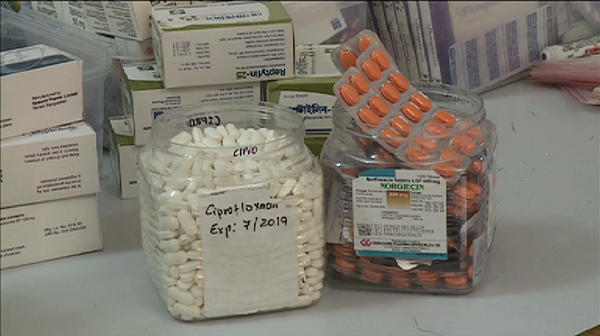 Fluoroquinolones are antibiotics that are commonly used to treat a variety of illnesses such as urinary tract infection (UTI), pneumonia, tuberculosis (TB) and gastrointestinal tract (GT) infections. But a study by the US Food and Drug Administration found the side effects of these antibiotics outweigh its benefit.
Fluoroquinolones are antibiotics that are commonly used to treat a variety of illnesses such as urinary tract infection (UTI), pneumonia, tuberculosis (TB) and gastrointestinal tract (GT) infections. But a study by the US Food and Drug Administration found the side effects of these antibiotics outweigh its benefit.
The study concluded these drugs can cause aortic aneurysm if they are prescribed without studying the medical conditions of the patients.
Aortic aneurysm is a condition where the blood vessel that pumps blood from the heart to other parts of the body gets dilated and can bulge and burst causing fatal bleeding.
“People who already have aneurysm, history of obstruction of blood vessels due to deposition of cholesterol, the elderly, people who have high blood pressure and with genetic condition where the blood vessels become naturally thin are at risk of aortic aneurysm,” Dr. G.P. Dhakal, the Head of the JDWNRH’s Department of Medicine, said.
The study states alternative treatment options should be considered for patients that fall in the risk categories.
“We have a lot of other antibiotics, which work similar to Fluoroquinolones. The coverage of certain bacteria by Fluoroquinolones is also covered by some other antibiotics. So, it’s not very worrying. Even if we cannot use Fluoroquinolones in certain people, we still have other antibiotics.”
However, Fluoroquinolones may still be a good option for other patients.
Dr. G.P. Dhakal said aortic aneurysm is not common in Bhutan. He attributes this to the country’s strict antibiotics policy, restricted sale of antibiotics, presence of antibiotic stewardship and narrow use of Fluoroquinolones.









